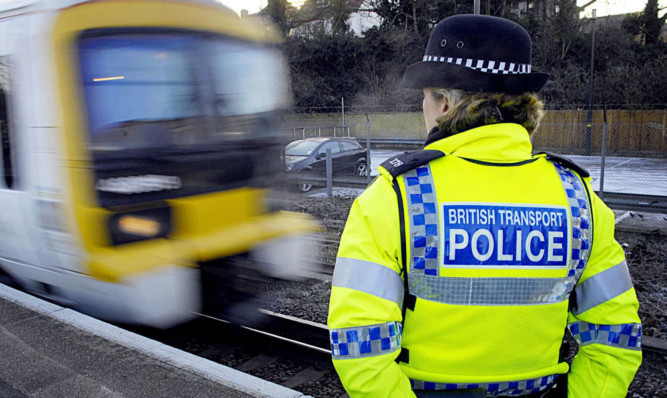Justice Secretary Michael Matheson is on collision course with the British Transport Police Federation over “unjustified and unjustifiable” plans to put Police Scotland in charge of the railways.
The single force will take control of that side of law and order once the relevant powers are given to Holyrood under the Smith Agreement.
Mr Matheson has announced British Transport Police (BTP) functions will be absorbed into Police Scotland.
In a letter to Scottish Liberal Democrat leader Willie Rennie in December, following the announcement that BTP would have to answer to MSPs for issues north of the border, BTP Federation chairman George Lewis said changes could impact negatively on the public and rail staff.
He added: “To this federation, such a move is both unjustified and unjustifiable.
“It is a betrayal of the BTP and our members who have worked tirelessly to achieve their policing targets year after year. The ‘sticking plaster’ of subsuming the BTP into Police Scotland may help (the Scottish Government) keep their promise (to maintain officer numbers) in the short term, but what message does this send to the travelling public who will inevitably see numbers of police officers on the rail network decrease at a time when the terror threat is at ‘severe’.”
A Scottish Government spokesman said: “Over the course of 2015 we will continue to engage with all stakeholders including the BTP, the BTP Authority, the BTP Federation and the rail industry on how this can be most effectively achieved within our national Police Service.”
Mr Matheson added: “We believe this would be a better fit for how we are taking policing forward in Scotland.”
A BTP spokesman said: “We are aware of the Justice Secretary’s public comments on the future of railway policing in Scotland.
“Our number one priority remains the continued safety and security of the railways in Scotland, and across the rest of the network.”
Scottish Conservative transport spokesman Alex Johnstone said: “People will look at this move and think the SNP is again using Police Scotland to make a political point.”
